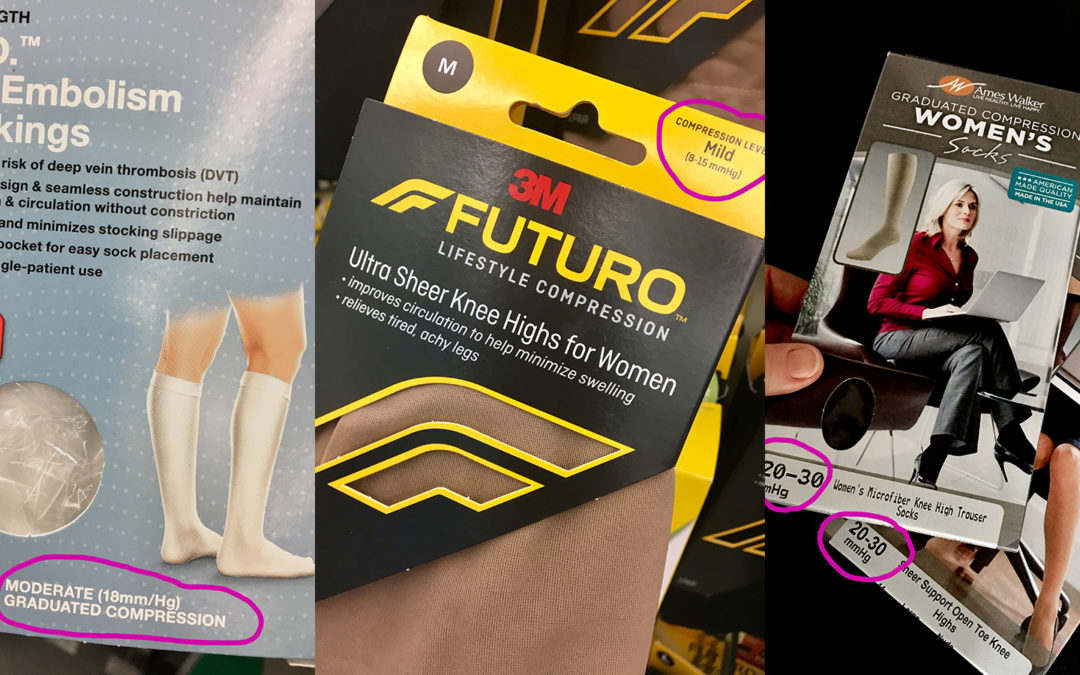People consider wearing compression stockings for different reasons, from relieving leg swelling caused by standing on their feet all day at work, to helping prevent a potentially life-threatening condition like Deep Vein Thrombosis (DVT). For whatever reason you are considering wearing compression stockings, there is a stocking or sock out there for you.
Today’s compression socks are engineered to provide support through integrally-knit graduated compression. This simply means that the sock provides therapeutic pressure designed to be tightest at the ankle and gradually lessen toward the top of the stocking. By applying pressure around the circumference of the leg, the stocking helps push blood from the feet upward to the heart. Stocking are made for both men and women, athletes, and come in a variety of colors, lengths, and styles. They can be purchased on-line, at drug stores, at medical supply outlets, or here at Totality.
When purchasing stockings, it is important know the amount of compression the sock provides. Compression is measured in mmHg, and this measurement should be indicated on the front of the packaging. The higher the number, the stronger the compression. At Totality, we prescribe stocking for our patients who have spider veins, varicose veins, DVT, lymphedema, leg wounds that are a result of chronic venous disease, and following sclerotherapy and varicose vein treatments. Dr. Santangelo recommends a compression of 20-30 mmHg for both spider and varicose veins, and 30-40 mHg when the deep vein system is involved or if the patient is experiencing lymphedema.
At Totality, we are frequently asked if drugstore brand socks or stockings they may have received in the hospital following surgery (TED hose) are adequate for their spider of varicose veins. Drug store socks might have a high enough mmHg rating, but TED socks are designed for those on bed rest only not for daily use. If these conditions are problematic for you (they cause pain, discomfort, swelling) we recommend that you come in for a free screening to have your leg assessed and measured, so the correct stocking strength can be prescribed and the stocking custom-fitted for your specific needs.

